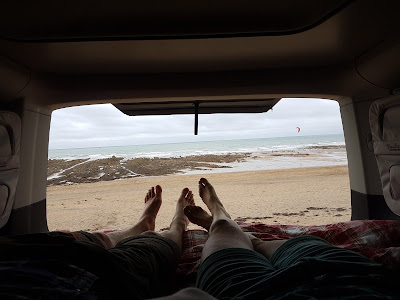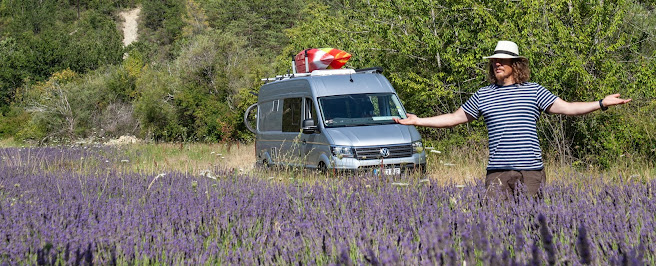Likes are good. Shares are better. But direct action is best.
UPDATED 28/01/16
The internet, or more specifically, social media, is a powerful thing. It can spread jokes, images, movies and empathy and outrage to every corner of the world in seconds. It likes cat pictures and shots of your dinner and film of my dog trying to get comfy. And there is nothing wrong with that.
The internet, or more specifically, social media, is a powerful thing. It can spread jokes, images, movies and empathy and outrage to every corner of the world in seconds. It likes cat pictures and shots of your dinner and film of my dog trying to get comfy. And there is nothing wrong with that.
However, I am really curious about the effect that social media can have on the real world. Sometimes I feel that social
media is just a way of communicating something, anything, to our fellow humans,
whatever it is. There are other times when I feel the swiftly flowing wind of possibility
blow through my time line. These are the times when the internet becomes an open
door and it feels as if we’re really starting to get somewhere. My twitter
postcard comps, for example, are experiments in making things happen – and I am always thrilled
to get so many inspired entries turn up on my doormat.
And when I see posts on facebook from the WTF [more
here] about upcoming beach cleans I can see that social media can do
wonderful things. It can bring us together to clean a beach – as it does so
effectively for the WTF here in Bude. That's remarkable. Social media enables us to have an opinion and can
make things happen. If we want it to.
Some mornings, when I see pictures posted to Instagram using the hashtag #2minutebeachclean
from all over the globe (today, Florida, California,
Wales, UK south coast) I feel a touch of hope. And more so when we collect
likes for our pictures. We have the approval of those who see them. Fantastic.
It means that more people are getting the idea. It means that, perhaps, in some
small way, we are thinking the same thing: that there is something very simple
we can do to halt the tide of plastic washing up on our beaches.
Or is that just me getting ahead of myself? Probably.
A ‘like’ is a like (or a favourite) and that’s that. Nothing
else happens really other than a little warmth in the hearts of the poster and liker.
It doesn’t actually achieve anything other than helping to ‘raise awareness’ of
the issue at hand. There was a great image a while ago of ‘the first box of
facebook likes arriving with the victims of the Malaysia monsoon’. The headline was accompanied by a picture of a
confused looking Malaysian being handed a box of thumbs ups. That sort of
summed it up for me. Likes may let the world know you approve or feel empathy but they don’t solve anything.
So how about sharing? Sharing (or retweeting) is much more
where it’s at for me. Sharing is still quite passive but it does draw a line in
the sand. It says ‘hey guys, check this out, it’s worth seeing’. Obviously you
could say the same for a petition banning female circumcision or a film of a
kitten falling off a shelf, but it’s how the internet works. The more you
share, the more people see it, whatever the nature of the content.
The #2minutebeachclean is all about sharing, because it can’t
exist without it. We use (and rely on) social media to spread the word while
the hashtag enables anyone to keep tabs on us and our progress. The point of
the campaign is to persuade everyone and anyone to take just 2 minutes to pick
up litter. It relies on vast numbers of us to make a real and lasting
difference to our coastline so the more people know about it, the better. That’s
why I’d ask you to share or retweet our posts rather than just like them. Because
a few beautifully timed shares and retweets can send our message around the
world in an instant, and in a way that likes simply cannot.
Having said that, there really would be no point in sharing
or retweeting if nothing happened at the end of it. Because direct action is
what’s important here, as it is in all aspects of life. We would like to see
everyone take responsibility for their patch, whether that’s a woodland, beach,
park or street. We want to bring about a change in people’s attitude towards
litter and plastics. We want to see a reduction in litter entering our oceans,
spoiling our views, choking our streams and rivers and killing our fellow
animals. So far over 12,240 images from across the globe have been posted to
Instagram, with more being posted each day, which is a very good start. And we don't know how many have been posted to twitter because it's impossible to count. But let's be conservative and say 5,000 at the least. The hashtag has been translated into Spanish, Malaysian, Danish, Gaelic and Welsh and has been used in Puerto Rico and Ireland and will be launched in Israel at a huge event in Haifa in July. But we would love
to see ever more from every corner of the globe – because really, it’s one of the only ways we have of knowing who is
rolling up their sleeves and getting stuck in.
The only other way we know of how successful the campaign has been is our stats on our pilot beach clean station in Bude. In the year the station was used, compared to the year before, beach cleaners counting beach litter on a monthly organised clean counted 61% less litter. That's a start and it's all down to people using our signs. Likewise in the first few months of being on the beach at Widemouth Bay and Black Rock, also near Bude, our stations dispensed 250 used plastic bags to people going on #2minutebeachcleans. Collectively it is estimated that they removed half a tonne of plastic litter (at 2kg per bag). We now have 20 stations in Ireland and 15 in Cornwall and Devon.
The only other way we know of how successful the campaign has been is our stats on our pilot beach clean station in Bude. In the year the station was used, compared to the year before, beach cleaners counting beach litter on a monthly organised clean counted 61% less litter. That's a start and it's all down to people using our signs. Likewise in the first few months of being on the beach at Widemouth Bay and Black Rock, also near Bude, our stations dispensed 250 used plastic bags to people going on #2minutebeachcleans. Collectively it is estimated that they removed half a tonne of plastic litter (at 2kg per bag). We now have 20 stations in Ireland and 15 in Cornwall and Devon.
Two minutes isn’t much to ask is it? It’s nothing but it’s
everything. The moment you bend down to pick up litter you say ‘I’m not happy
with this being here’. You are taking direct action, even if it’s just one
piece of litter, and that’s what matters.
So please, like or share or retweet or favourite to your
heart’s content. It means a lot that you do. And, of course, we’d prefer it to
be a share rather than a like. But also, please, allow it to lead you
somewhere. It’s just 2 minutes.




This comment has been removed by the author.
ReplyDeleteBy coincidence I was thinking about this exact issue yesterday, I 'favourited/liked' a photo of a young lad enjoying a 2minutebeachclean. My hope in doing so was that if the photo attracted lots of likes then the lad would be pleased and excited that he had received attention and praise and it would encourage him to continue his beach cleaning and also enthuse his friends. We need young people to grow up with the idea that we can all do a bit to help and that it can be fun! So for me retweeting spreads the general concept and favouriting is a personal thanks to our wonderful 2minutebeachcleaners
ReplyDelete